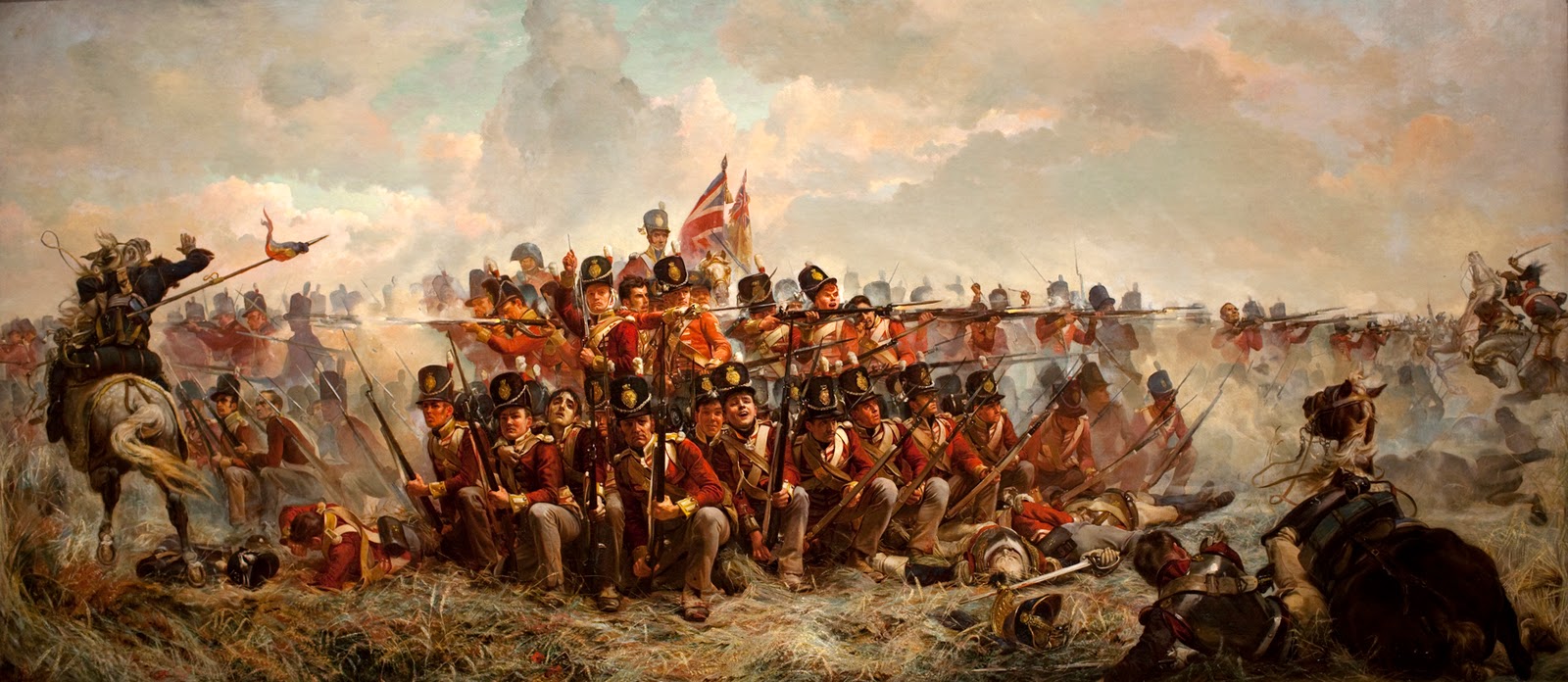Waterloo: The History of Four Days, Three Armies, and Three Battles by Bernard Cornwell
 is Cornwell's first venture into non-fiction.
is Cornwell's first venture into non-fiction. The author, best-known for his historical fiction (including the Sharpe series as well as the ongoing Saxon Chronicles, and numerous other excellent pieces of work), manages to combine the clarity of prose of the novelist with the myriad details of the historian, serving up a rousing, reader-friendly account of the famous battle that brought the Duke of Wellington head-to-head with the Emperor Napoleon in a quiet Belgium valley.
Cornwell wastes little time on background players, pulling together a quick overview of the circumstances that led to the battle, outlining Napoleon's flight from his exile in Elba, the rallying of the French forces, the seizure of Paris and the subsequent shock the Hundred Days sent through his enemies, to galvanize both the British and the Prussians. He wastes little time on the politics and focuses mainly on the circumstances and events that propelled Napoleon and his armies into Belgium, to hammer at the seam between the two allied opposing forces, the British under Wellington, and the Prussians under Blucher.
This then was the first battle of the title - Quatre Bras - which saw a piecemeal British and Dutch-German force hold (temporarily) a vital crossroads linking the two allied armies. Cornwell demonstrates his considerable acumen in providing readers with an accurate, clear picture of why the crossroads mattered to the Prussian-British forces, and what were the vagaries of war that prevented Napoleon from seizing a critical juncture in a timely fashion.
The second battle is the oft-overlooked Battle of Ligny, which saw the Prussian forces pushed back in a bloody vicious see-sawing fight. Cornwell pulls together the various tactical and strategic threads into a cohesive and understandable picture of the situation - the retreat of the Prussians, the opportunity it opened for Napoleon, and his failure to properly capitalize on it.
The final battle (and the meat of the book) was Waterloo. Aficionados of military history will find
little new or substantially different in anything Cornwell has written. The Battle of Waterloo has been re-treaded so frequently that most of the controversies that tend to tie historians in knots are often of little consequence to the typical reader. Cornwell is uninterested in shedding any additional light on history, and is more focused on providing a concise, clear and well-documented account of all the major set-pieces made famous in the battle. He lays out a very good descriptive account of the battle, the players, circumstances and tactics utilized by both British and French troops, delves into the personalities of both Napoleon and Wellington and the many subsequent supporting players who played critical roles in what Wellington referred to as "a near run thing. The nearest run thing you ever saw in your life."
Where Cornwell excels is his focus on the experience of the battle through the eyes and position of the common soldier. He discusses the limited view most men had of the battlefield, and the subsequent distortions in accounts that are then magnified over time, politics and memory.
Overall Waterloo: The History of Four Days, Three Armies, and Three Battles is a rousing and gripping, if unsophisticated, look a the battle of Waterloo. A critical, detailed, in-depth study of the battle and the history, it is not, but as a generalized account, it is excellent. It is a solid, well-told look at a critical battle that re-shaped the history of Europe.
It is well worth a read, however if you are already reasonably versed on the battle, Cornwell's fictional account in Sharpe's Waterloo is, frankly, more fun to peruse. Sharpe's Waterloo covers the exact same ground, provides less historical overview but expansively more verve, excitement, sense and colour. Cornwell as a fiction writer is excellent at pulling you into the smoke, confusion and din of battle and Sharpe's Waterloo is one of his very best works and will leave you with a memorable page-turning account that hits all the same high-points as the dryer, more stoic non-fiction account.



No comments:
Post a Comment